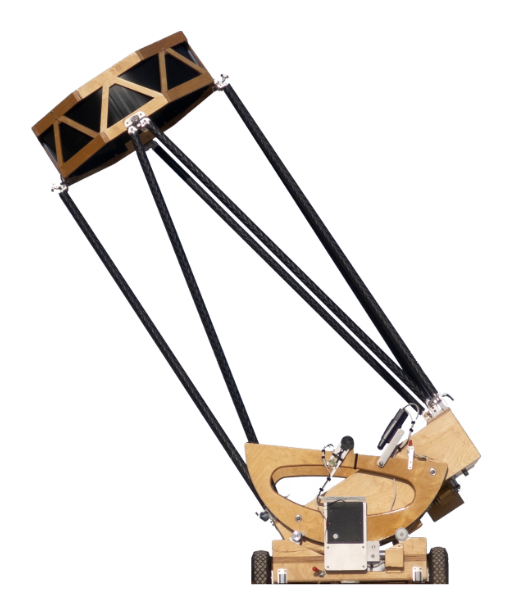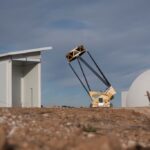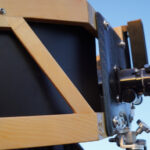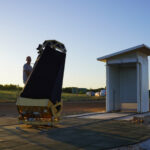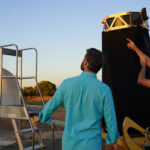Dobson telescopes
Discover the sky through the largest telescopes in Andalusia dedicated to observation by astronomy lovers.
You can discover the wonders of the sky in our astronomical observation nights using the largest telescopes in Andalusia dedicated to observation that currently exist.
The complex has two large Dobson-based reflecting telescopes with which to observe planets, moons, stars, galaxies, nebulae, clusters and much more.
In addition, we have other additional areas where you can place your portable telescopes, both for the night sky and for solar observation.
Characteristics
Dobson telescope 560 mm
A 560mm (22in) telescope that allows you to see wider.
Dobson 711 mm telescope
A 711mm (28-inch) telescope to see farther and better into the sky.
How was the election?
The same criteria were used in both: the highest possible quality, regardless of expense. This means a structure built by Frédéric Géa de Stellarzac, whose passion for the subject is probably unparalleled: he lives and dreams of building large telescopes all the time.
The mirrors
As for the mirrors, in the 28-inch, a John Lockwood mirror was polished to a premium quality to allow for the best possible experience.
Telescopes come in many sizes and shapes. The best known are the so-called refractors, which consist of a tube with a lens in the front and one (or more) in the back to concentrate the image on the retina.
A well-built refractor is wonderful, because there is no obstruction in front of the image.
Adversity
But the problem is that, for optical reasons, it must be much longer than it is wide. Which means that, with a 28-inch lens, we are talking about a tube of about 6 meters, at least. For the same light gathering capacity, ours is 250 centimeters long. Good quality refractors should have at least three lenses, which means six surfaces to be polished, at a minimum. And in large sizes, the glass becomes unstable.
For these reasons, large refractors stopped being built at the end of the 19th century.
Currently, all large professional and amateur telescopes consist of a mirror that concentrates the light at the base, which is then deflected to the side, as is the case with ours, or behind the mirror through a hole.
Each telescope design has its advantages and disadvantages. Due to its stability and robustness, the Dobsonian, proposed for telescopes by John Dobson in 1965, has since become the standard for big hobbyists.
We use this design to invite you to climb the ladder and embark on a journey through the stars with us.
Facilities
Its spherical projection and surround sound will delight the public while enjoying content projections.
The observation center has a reception, including a toilet, a pergola for picnic and rest, and a disinfection area.


